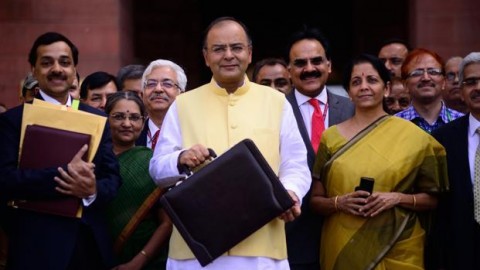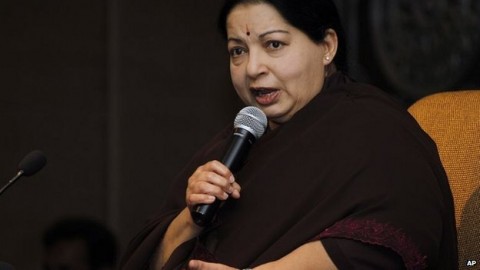One of the fundamental tools for human survival is shelter and housing,keeping aside the biological necessities of food and water. In this regard, India offers two starkly contrasting pictures that exist simultaneously. On the one hand, we have the elite and middle class who lead fairly complacent lives and on the other, we have the homeless.

Image Source: Rediff
While we sit comfortably tugged up in our blankets with the room heater on, on a chilly winter night, they sleep with minimal clothes to protect themselves from the harsh cold. While we sip hot coffee when seated on a cozy sofa, they long for water to simply quench their thirst let alone a hot beverage.
This phenomenon is an urban one, where a major chunk of the urban poor cannot find a place to sleep. They do not possess a land which they can call their ‘home’. Most of the workers who fall under this category are migrants. They are either single or have left their families in their native home and moved to cities in search of work. Devoid of any security and with a meagre amount of money in their hands, they are unable to find adequate places for residence since that would mean a diversion of money for other purposes.
 Summer months are still bearable where they find temporary shelter on roads and pavements and other abandoned land. It is the winter months that become a challenge because they not only need a place to sleep; they also require clothing, blankets, etc. in order to shield themselves from the chill. Vulnerable as they are, they fall host to a number of diseases due to low immunity owing to malnutrition and exposure to the winter cold. Thus, winter is harbinger of a plethora of complications that come uninvited with the icy temperature. Sleeping on pavements has also given rise to another condemnable consequence of late night drunk driving. Drunk rash drivers drive over the pavements leading to severe injuries and many a times death of those who sleep there. Several such cases of hit and run have been reported recently and since most of the drivers are socially, politically and economically powerful, they easily get away with it. After all, who really bothers about a homeless man who died because he had no place to go? And so, another faceless anonymous soul leaves this planet and it does not actually matter to anybody. Callously, the society blames the homeless for not sleeping elsewhere and the bureaucracy makes no effort to punish the culprit and the society does not demand it either. Hence, the plight of the homeless worsens.
Summer months are still bearable where they find temporary shelter on roads and pavements and other abandoned land. It is the winter months that become a challenge because they not only need a place to sleep; they also require clothing, blankets, etc. in order to shield themselves from the chill. Vulnerable as they are, they fall host to a number of diseases due to low immunity owing to malnutrition and exposure to the winter cold. Thus, winter is harbinger of a plethora of complications that come uninvited with the icy temperature. Sleeping on pavements has also given rise to another condemnable consequence of late night drunk driving. Drunk rash drivers drive over the pavements leading to severe injuries and many a times death of those who sleep there. Several such cases of hit and run have been reported recently and since most of the drivers are socially, politically and economically powerful, they easily get away with it. After all, who really bothers about a homeless man who died because he had no place to go? And so, another faceless anonymous soul leaves this planet and it does not actually matter to anybody. Callously, the society blames the homeless for not sleeping elsewhere and the bureaucracy makes no effort to punish the culprit and the society does not demand it either. Hence, the plight of the homeless worsens.

Image Source: AP
Daily, they toil to earn money in the day and risk heir lives in their sleep at night. Homelessness is not an isolated phenomenon; it is in deed very deeply connected to the other social problems that threaten our country. Poverty, lack of education, shortage of job opportunities, and discrimination on various grounds cumulatively give rise to the problem of homelessness. The Ministry ofHousing and Urban Poverty Alleviation launched the Scheme of Shelter for Urban Homeless (SUH) under the National Urban Livelihoods Mission (NULM) in 2013. Apart from this, various other provisions have also been made for example, the respective state governments have set up temporary night shelters with adequate bedding, water facilities, etc. Yet, around 2 million people sleep in the open in India every day!
To aggravate the issue, women who form a large part of this category, suffer from other difficulties, more than what men have to face. Sexual abuse, violence, harassment, trafficking, prostitution are the dangers that loom large. Add to that, medical problems, biological stresses and basic healthcare issues, the condition of a homeless girl child or woman is deplorable, alarming and distressing.

Image Source: The Guardian
When dealing with issues such as these, it becomes quite hard to pin point where the society is at fault and where does our social responsibility come into play. The onus lies with the government who has to ensure the basic rights of every individual in this country. As members of the society, the least we can do is provide them with the basic amenities of life and the most that can be done is set up night shelters to ensure their security. But then again, that is not something that can be expected out of every citizen living in favourable conditions. Since this problem does not come alone but brings with it a host of other challenges, it needs to be curbed and quick action by the state in demanded in this regard. A sensitive society, dutiful bureaucracy, and a just government can bring about significant positive impacts in this direction.
Tags: Homeless Homeless people in India








